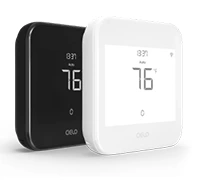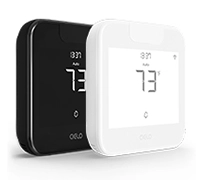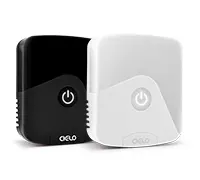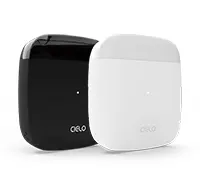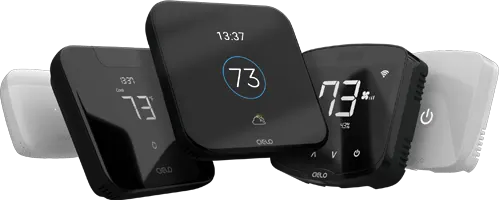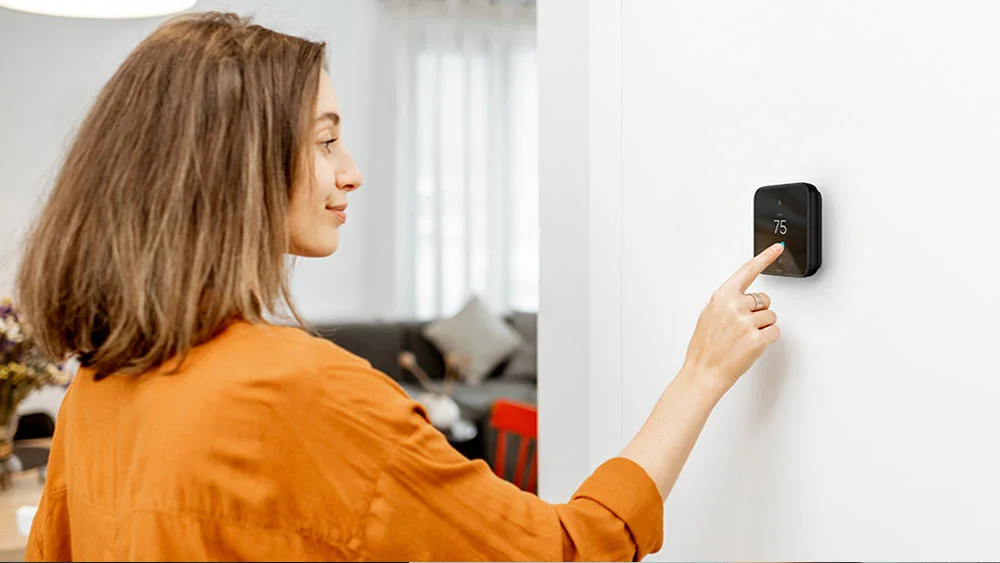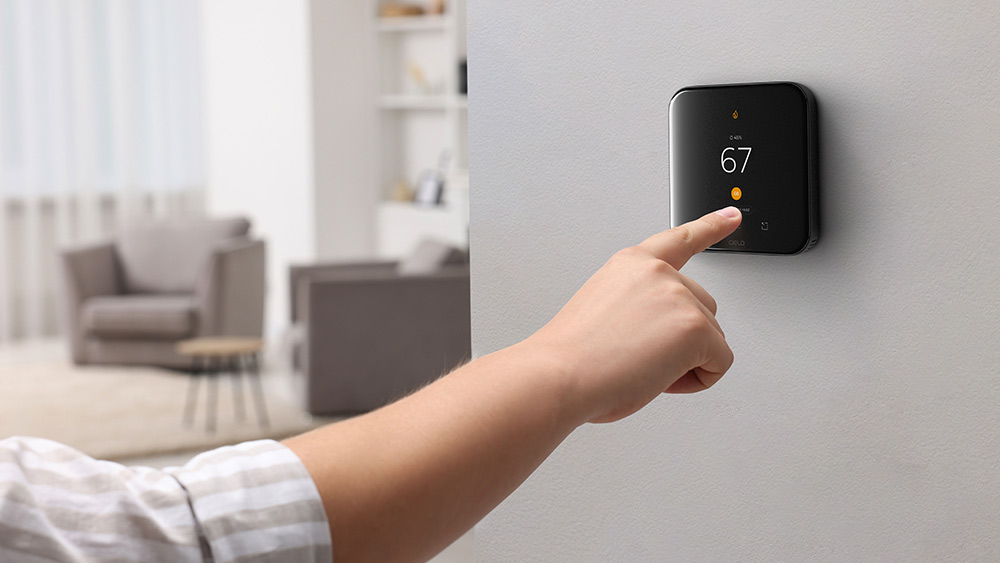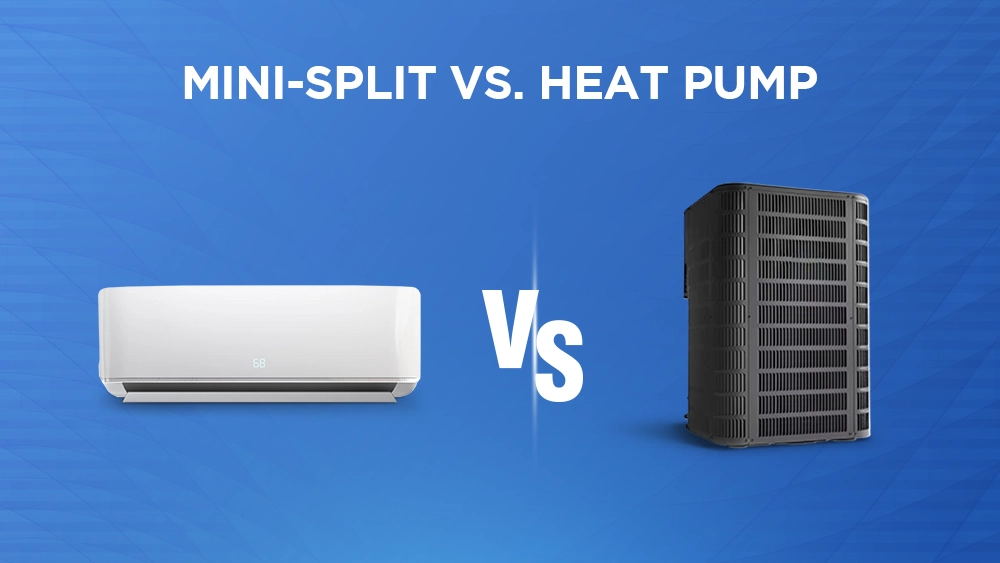
Key Takeaways
- An inverter air conditioner adjusts compressor to match your cooling needs.
- These systems provide steady temperature control without the frequent on/off cycling.
- While inverter ACs may have a higher initial cost, their energy efficiency can result in significant savings over time.
As the world becomes increasingly conscious of energy consumption and environmental impact, technological advancements in the HVAC industry have enabled more efficient heating/cooling solutions. Inverter air conditioners have emerged as game-changers in terms of energy efficiency and potential savings.
Gone are the days of traditional air conditioners operating at a fixed speed, consuming excessive energy and resulting in inflated electricity bills. Instead, inverter air conditioners have revolutionized the HVAC landscape by intelligently adapting to your heating/cooling requirements and optimizing energy usage.
This blog will delve into the workings of inverter air conditioners, exploring their working, benefits, and any limitations they might have. Additionally, it will address common questions and the top inverter AC options for you to consider.
What Is An Inverter Air Conditioner?
An inverter air conditioner is a type of air conditioning system that uses advanced technology to control the speed of the compressor motor. This means the compressor can adjust its speed continuously, smoothly ramping up or down to meet your cooling or heating needs without abrupt on-off cycling.
When the temperature reaches the set point, the compressor slows down to conserve energy. If the temperature rises, it gradually increases speed to provide more cooling as required. The compressor never shuts down; it just adjusts its speed, and this continuous operation ensures a steady circulation of cool air.
Inverter vs. Non-inverter Air Conditioners

In traditional air conditioners, the compressor operates at a fixed speed: it starts at full capacity and runs continuously until the room reaches the set temperature on the thermostat. Once this temperature is reached, the compressor shuts off completely until the room warms up again. This cycle can lead to higher energy consumption.
Instead of simply turning on and off, the inverter technology, allows the compressor to vary its speed according to your cooling/heating requirements. Unlike non-inverter models, which constantly start and stop, inverter air conditioners smoothly adjust their compressor speed, thus saving energy by up to 30%.
Mehdi Khachani, CEO of JMK Plumbing & HVAC, states, “Inverter air conditioners are highly suitable for areas with varying temperature ranges and for users who require consistent cooling throughout the day. Non-inverter air conditioners can be a good choice for regions with more consistent temperatures and for users who only need cooling for short periods.”
| Inverter | Non-Inverter |
|
|
|
|
|
|
|
|
Benefits of Inverter Air Conditioners
Here is what makes these air conditioners worth the investment:
-
Energy Efficiency
Inverter ACs are significantly more energy efficient and can help you save more on your electricity bills than non-inverters.
This is because the variable-speed compressor in an inverter air conditioner adjusts its speed to match the cooling requirements, consuming only the necessary amount of energy. On the other hand, a traditional AC operates at full power during its entire cycle, resulting in higher energy consumption and less efficiency.
-
Comfort
Inverter air conditioners provide enhanced comfort by maintaining a stable and consistent temperature. The continuous adjustment of the compressor speed in an inverter AC ensures that the desired temperature is reached and maintained without any temperature fluctuations.
-
Noise Levels
Inverter air conditioners operate at lower noise levels compared to non-inverter ACs. This is because the variable-speed compressor in an inverter AC does not run at full speed, resulting in reduced noise during operation.
Related: How to Reduce Air Conditioner Sound for Peace and Quiet
-
Durability
Inverter air conditioners often have a longer lifespan. They operate at lower speeds, which reduces wear and tear on the compressor, extending its overall lifespan.
Related: 8 Ways to Extend the Average Life of AC Unit– How to Make Your HVAC System Last Longer?
Limitations Associated With Inverter ACs
While inverter air conditioners offer numerous advantages, they also have a few limitations that you should know about:
-
Higher Initial Cost
Inverter ACs typically have a higher upfront cost. The advanced technology and components involved in inverter models contribute to the increased price. However, their low operating costs can offset this initial investment in the long run.
-
Sizing Is Highly Important
Ensuring the right AC size is crucial, particularly for inverter ACs. If the unit is undersized for the room, it will always run at maximum capacity, negating the advantages that inverter technology offers.
Make the Most Out of Your Inverter AC
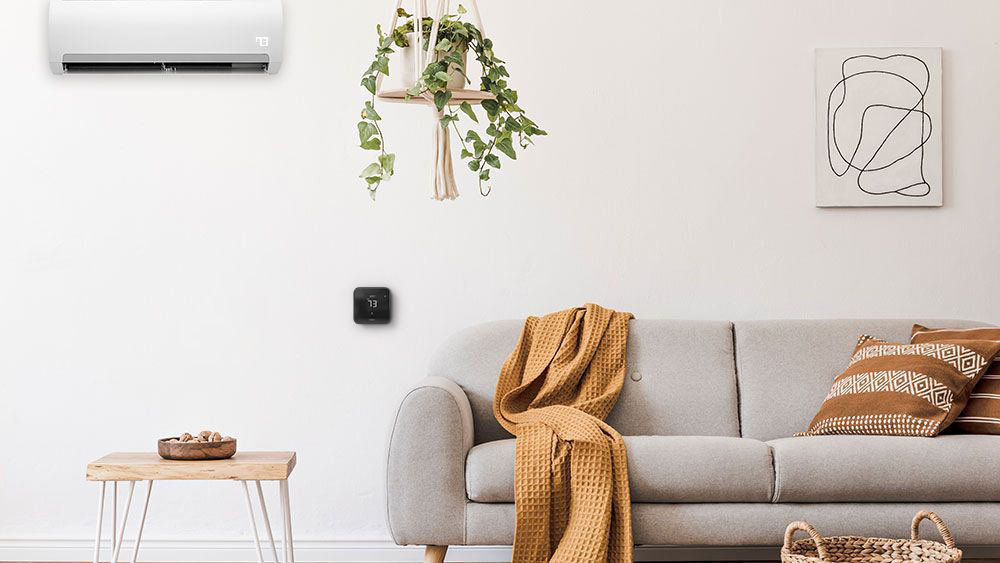
To amplify the savings and benefits, you can make your inverter air conditioner smart with the help of smart climate control devices. In the case of mini-splits and other room ACs, like window units, you can pair them with smart thermostats for mini-splits. For a central HVAC system, you can enhance its efficiency and control by using smart thermostats.
These smart devices allow you to control your unit from anywhere in the world and offer a plethora of smart features. This can include features like scheduling, geofencing to automatically adjust temperature when you’re away, real-time energy monitoring to identify areas for energy conservation and integration with smart home platforms for voice control and further convenience.
Your best choice to make any mini-split, window,
or portable AC smart. Enhance your comfort and savings.
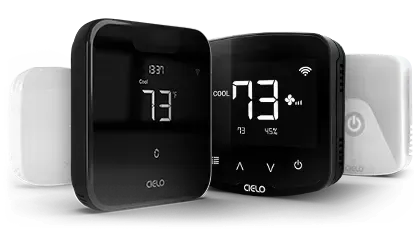
Top Inverter Air Conditioners to Consider in 2023
These are the top contenders to look out for:
1. Midea Inverter Window Air Conditioner
The Midea Inverter Window Air Conditioner is a high-quality and efficient cooling solution, incorporating advanced inverter technology to deliver superior performance and energy savings. It claims to save more than 35% on energy consumption and is nine times quieter than a traditional unit.
2. Pioneer Ductless Inverter Air Conditioner
This Pioneer HVAC system is designed for optimal comfort and efficiency. The DC inverter-driven compressor adjusts speed to provide stable operation while reducing energy consumption. Its whisper-quiet fan and louver mechanisms, coupled with a sleep mode, make it perfect for undisturbed sleep, as the system operates so quietly you won’t even notice it. The system also features a large, backlit LCD display and a multifunctional wireless infrared remote controller for ease of use.
3. LG Dual Inverter Window Air Conditioner
The LG Inverter Window AC is a smart window air conditioner. It includes Wi-Fi connectivity and can be integrated with Google Assistant or Amazon Alexa. This window AC has dual inverter technology and claims to provide up to 15% more energy savings than the ENERGY STAR certification requirement. It delivers powerful yet silent performance, operating at sound levels as low as 44dB in sleep mode.
4. Cooper & Hunter MIA Series Mini-Split Heat Pump
The Cooper&Hunter Mia Series mini-split is a powerful and efficient unit offering year-round comfort in any climate. This 12,000 BTU unit delivers exceptional cooling in summer and efficient heating in winter, even in temperatures as low as 5F. The inverter compressor in the Mia Series saves energy compared to traditional compressors, making it a more sustainable choice for the environment. The system’s Whisper Technology ensures quiet operation, making it a great choice for bedrooms and living spaces.
You can control the unit remotely using your smartphone and the C&H Remote app (requires a separate USB adapter).
5. Midea Duo Inverter Portable AC
The Midea Duo Inverter Portable AC features an innovative dual hose-in-hose design that intakes and exhausts air outdoors, ensuring balanced air circulation and preventing hot air from seeping in. This unit utilizes variable-speed inverter technology to cool more efficiently, achieving over 40% energy savings compared to the U.S. federal standard.
Smart control capabilities include Wi-Fi connectivity, app control via the MSmartHome App, and voice control with Alexa and Google Assistant.
Should You Buy an Inverter AC?
Despite the higher initial cost, inverter air conditioners tend to operate more efficiently. Over time, the energy savings they provide could potentially offset the upfront investment significantly. The exact amount you save depends on the electricity rates in your area and how frequently you use your inverter AC. Therefore, if long-term efficiency and reduced operational noise are important to you, investing in an inverter AC could be a wise decision.
